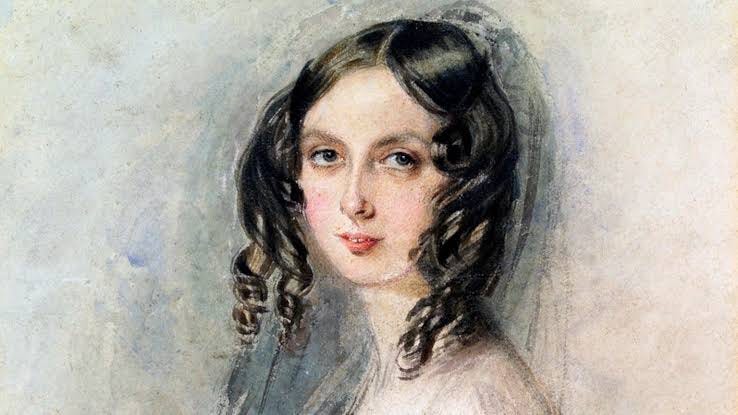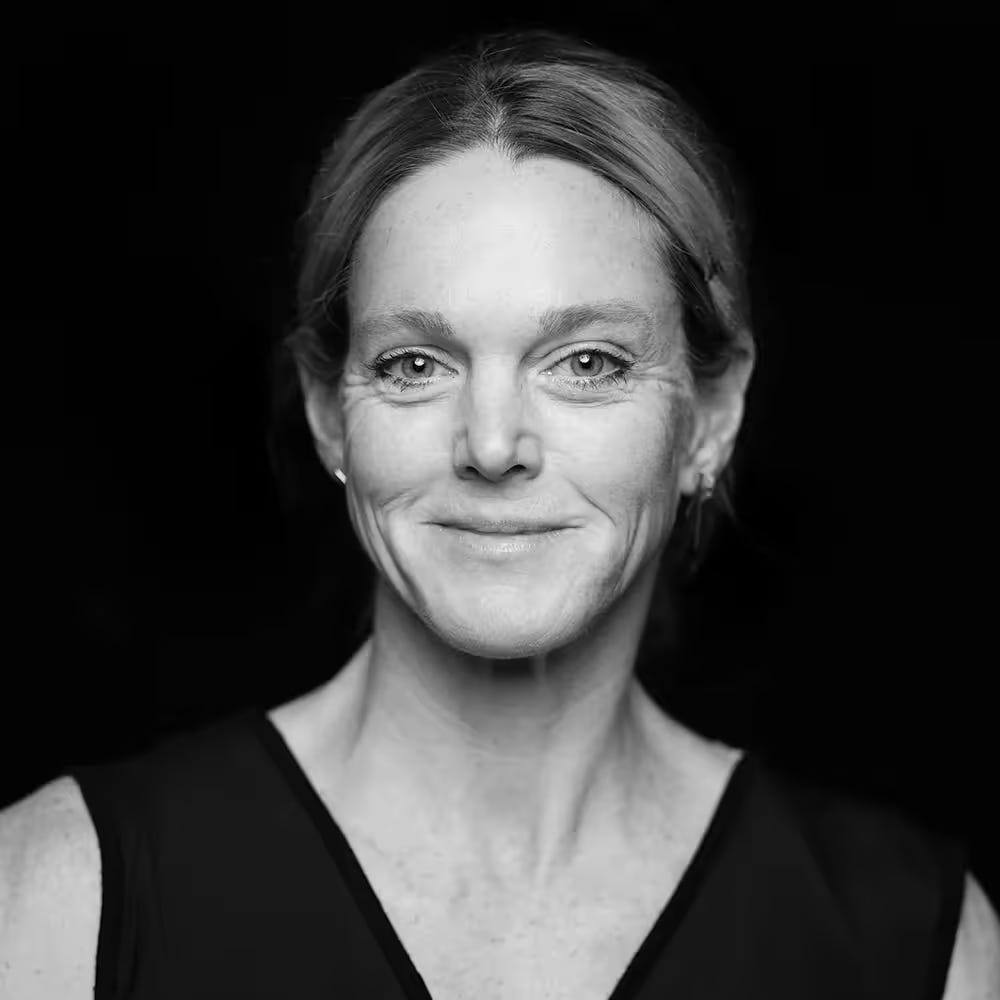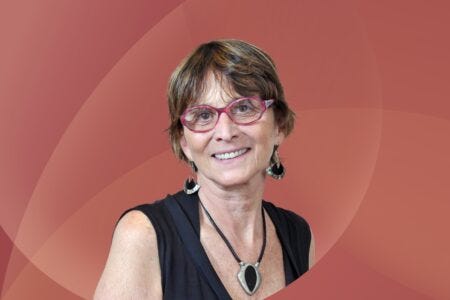Issue 13: Women of Science Oct '24
News, profiles, research, reviews, recommendations on all things women in science
Hello everyone - a bit of an un-hiatus from me, with WOSc now once again returning to your inboxes on the regular(!): Since hitting the pause button officially back in July, I’ve received several very kind messages prompting me to rethink the schedule (and also a lot of people continuing to subscribe despite the hiatus - so, thank you for being here!).
As always, suggestions, recs and feedback continues to be welcome - and I hope you enjoy this and all issues going forward! 🧬
ALSO: Today is Ada Lovelace day! So I’ve written a brief profile of the woman herself for this week’s main feature - more below 𝞹📈🧠📚
🔬 What to expect?
All subscribers receive the free edition covering highlights in media, awards and discovery as well as things to read, see and watch re: women in science. Drops every Tuesday. Tell your friends:
Thank you for joining. Enjoy the read.
A quick run-down of this issue:
Abstract & Intro: News and updates on all things women of and in science
Materials, Methods, Discussion: Profile of a scientist - Ada Lovelace
Conclusions & Further Reading: Our media & content recommendations for your weekAbstract & Intro
Your rundown of headlines, news, notes & media snippets re: women of science
📌 Tech: Women face increasing pressure to choose between family and career in tech, says new report
Depressingly yet unsurprisingly, >75% of women surveyed by Web Summit said they feel the need to work harder than their male counterparts, according to a report from Web Summit.
📌 CompSci: Most Influential Women in UK Tech: Computer Weekly’s Hall of Fame
Computer Weekly’s list of the Most Influential Women in UK Technology returns for 2024, having now run annually since 2012 with a view to make female role models in the UK’s technology sector more visible and accessible 👩🏻💻
Women-founded biotech Helaina recently announced an enormous Series B fundraising round, that will support their work in commercialising human lactoferrin to support women’s health, active nutrition and healthy aging 🏋
📌 Healthtech: 23andMe to launch GLP-1 telehealth offering
Long-troubled women-founded genomic testing company 23andMe is launching a GLP-1 weight loss telehealth membership through Lemonaid Health 🧬
📌 Healthcare: Data integrity concerns flagged in 130 women’s health papers — all by one co-author
A team of scientist–sleuths has flagged data-integrity concerns in 130 studies authored by the same biomedical researcher; a specialist in women’s health and gynaecology, and his colleagues.
📌 Healthcare: Perelel Acquires LOOM to Boost Women’s Health Education in Sexual, Reproductive Health
Women's health company Perelel this week announced the acquisition of women's educational health platform LOOM for an undisclosed sum
📌 Biotech: Biogen turns to telehealth company to boost its postpartum depression drug
As Biogen aims to grow sales of postpartum depression drug Zurzuvae, it’s turning to well-funded telehealth company Talkiatry to boost awareness of and care for the often overlooked condition.
📌 R&D: Nearly 50% of researchers quit science within a decade, huge study reveals
The bad news continues this week I’m afraid; 20+ years of publishing data across many countries and disciplines show women are more likely than men to leave research
& in other brief news:
Materials, Methods, Discussion
This week - we’re profiling mathematician Ada Lovelace (appropriately, today is Ada Lovelace day - the second Tuesday in October each year where the contributions of women to science, technology, engineering and mathematics are honoured) as part of a series of “Women in Science” that you may or may not be familiar with, showcasing their life and work…
Ada Lovelace was born Augusta Ada Byron on December 10, 1815, and, let’s be honest, has one of the most cinematic origin stories in the world of science.
The daughter of the iconic romantic poet Lord Byron and Lady Anne Byron, her early life might sound like a Regency-era fairytale, but was arguably far more complicated: Byron (whose parental instinct leaned more towards scribbling tortured love letters than child-rearing) left when Ada was a baby, and her mother—probably more than a little bruised by the experience—turned to numbers and logic instead of poetry, hoping Ada might avoid the same fate. And so, mathematics became Ada’s constant, nurtured by her mother’s firm hand and an all-star line-up of tutors.
Fast forward to Ada at 17: Already floating on the fringes of intellectual society, she meets Charles Babbage, a man who we’d probably now describe as that friend who’s always coming up with wildly impractical ideas—except Babbage’s weren’t impractical at all. His obsession was a mechanical calculator he called the "Difference Engine" (not exactly a catchy name, but bear with him), which inspired the later “Analytical Engine” which could, in theory, calculate anything (a seeming fan of endearing nomenclature, Babbage also assigned Lovelace the nickname "Enchantress of Numbers”) This friendship between the two was key to what would become one of the most significant intellectual partnerships in the history of computing.
"The Analytical Engine might act upon other things besides number... the engine might compose elaborate and scientific pieces of music of any degree of complexity or extent" - Ada Lovelace In the early 1840s, an Italian engineer by the name of Luigi Federico Menabrea wrote a paper about the Engine (because even then, it took Europeans to see the genius that was brewing). Ada was asked to translate it into English, but in a move that was both bold and brilliant, she added her own commentary—essentially doubling the original content. These “notes” of hers were no afterthought, but instead a vision of what the machine could do beyond number-crunching: Lovelace foresaw it could, one day, compose music or process any kind of information. Famously, in these notes Lovelace included an algorithm to calculate Bernoulli numbers; a sequence of rational numbers important in number theory, and often considered the first computer program ever written. A woman coding in the 19th century? Yes, Ada was ahead of her time. Way ahead.
But, like most pioneering women in history, her work wasn’t exactly greeted with ticker-tape parades, and instead went largely unrecognised during her lifetime. Ada’s later years were also fraught with personal struggles: Having married William King (who later became the Earl of Lovelace) and bore three children, she developed persistent health problems that left her physically fragile. In 1852, aged just 36, she died of suspected uterine cancer: A stark ending, made all the more bittersweet by the fact that Ada was buried beside her absentee father, Lord Byron, in a family vault in Nottinghamshire—an awkward reunion, to say the least, of poetry and mathematics.
Lovelace’s brilliance, however, was never truly forgotten. It just took the world a century to catch up. Her contributions were republished in the 1950s, and by the 1980s, the U.S. Department of Defense named a new programming language "Ada" in her honour as a testament to her pioneering role in computing. Today, she is celebrated not only as a symbol of scientific progress, but also of the unrealised potential of women who dared to step outside societal boundaries. Rightly hailed as a visionary, Lovelace was the woman who saw that machines could be so much more than what they were designed to be.
The rest of the world just needed time to figure that out.
Find out more about Ada:
👩🏫 Ada Lovelace Institute: An independent research institute with a mission to ensure data and AI work for people and society.
⚛ Ada Lovelace Day: Ada Lovelace Day (ALD) is an international celebration of the achievements of women in STEM.
Conclusions & Further Reading
More links & signposts for you to enjoy this week…
The Written Word:
🤖 This Ex-Microsoft Executive-Turned-CEO Is Betting On “Gritty Tech”: Toni Townes-Whitley, CEO of government contractor SAIC and one of only two Black women running a Fortune 500 company, explains the power of mission-critical tech
😗🚬 ‘Amazing’ method traces 18th century smokers—and finds English women puffed away
😴 The real reasons women are losing more sleep than men: Menopause, pregnancy and hormones can all have a huge effect on women's sleep.
👩🔬 You can count female physics Nobel laureates on one hand – recent winners have wisdom for young women in the field: Out of 225 people awarded the Nobel Prize in physics, only five have been women. Physicist Filomena Nunes investigates...
💡 The startup show: Gen AI innovation and empowering women in tech: Kavita Reddi, co-founder of Voxta, joins PWM's Ali Al-Enazi to discuss the latest advances in generative AI, the role of women in tech leadership, and driving innovation in India.
🔍 Inside Facebook’s Scammy Abortion Access Network: An investigation from Forbes
🚀 NASA Project Manager Honors Mother’s Impact: An interview with NASA project manager Patricia Ortiz
🔊 Hear me out: Stop saying ‘problematic’: Slightly off-kilter rec but nonetheless an interesting read; why “problematic” is a problem, and is over-used in particular when referencing women…
Pods & vids:
🎙️ Huberman Lab: Dr. Stacy Sims: Female-Specific Exercise & Nutrition for Health, Performance & Longevity
Dr. Stacy Sims, Ph.D., an exercise physiologist, nutrition scientist, and expert in female-specific nutrition and training for health, performance, and longevity, deep dives into which exercise and nutrition protocols are ideal for women based on their age and particular goals.
🎙️ Elevating women in science: A conversation with Brazilian Academy of Sciences President Helena Nader
As the first woman president of the Brazilian Academy of Sciences in more than a century, Helena Nader is a staunch advocate for inclusion, championing gender, racial, and ethnic equity in science. In this fireside chat, hear how she’s repeatedly advanced research, improved nationwide levels of high school education, and closed gaps in scientific development among different regions of Brazil.
Opportunities:
Female Founder Accelerator: The Female Founder Accelerator is designed by Barclays Eagle Labs and AccelerateHER to support 100 female founders like you, who are beyond idea stage and poised for growth. The aim is to bring more women into entrepreneurship and level the playing field.
📍 Deadline: 1st November 2024
Inc. Female 500 Founders Competition: If you’re an inspiring, innovative, and tenacious role model in business, Inc. want to celebrate all that you’ve accomplished
📍 Deadline: 1st November 2024
That’s all for this issue!
Thank you for reading: The WoS mission is to support, share and promote the innovative and groundbreaking work that has been and continues to be done by women across all scientific disciplines, and to empower and inspire the next generation of female leaders in the field.
If you liked it, here’s another reminder to share us with your friends, network, neighbours, coffee baristas ☕ etc.:














